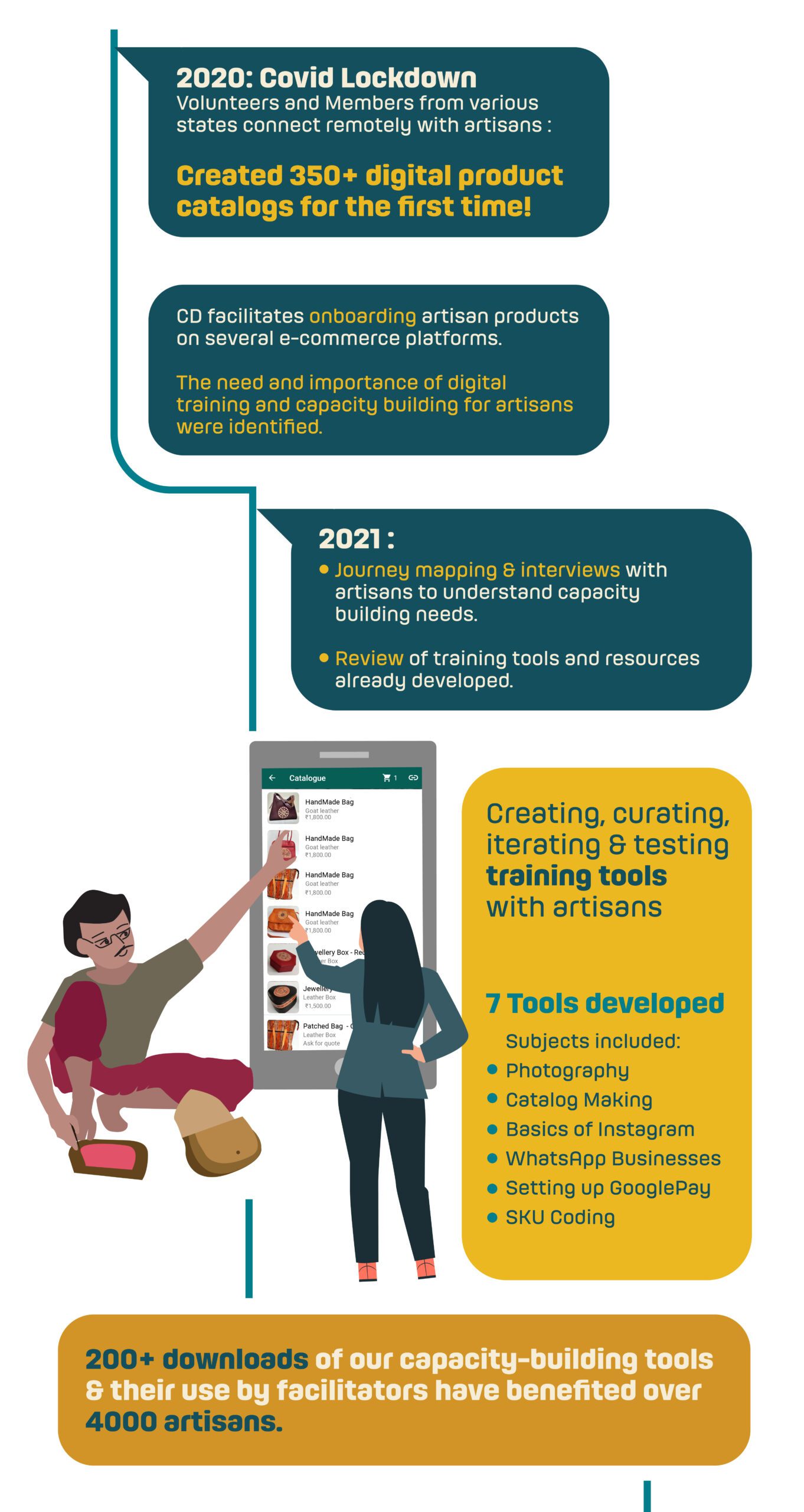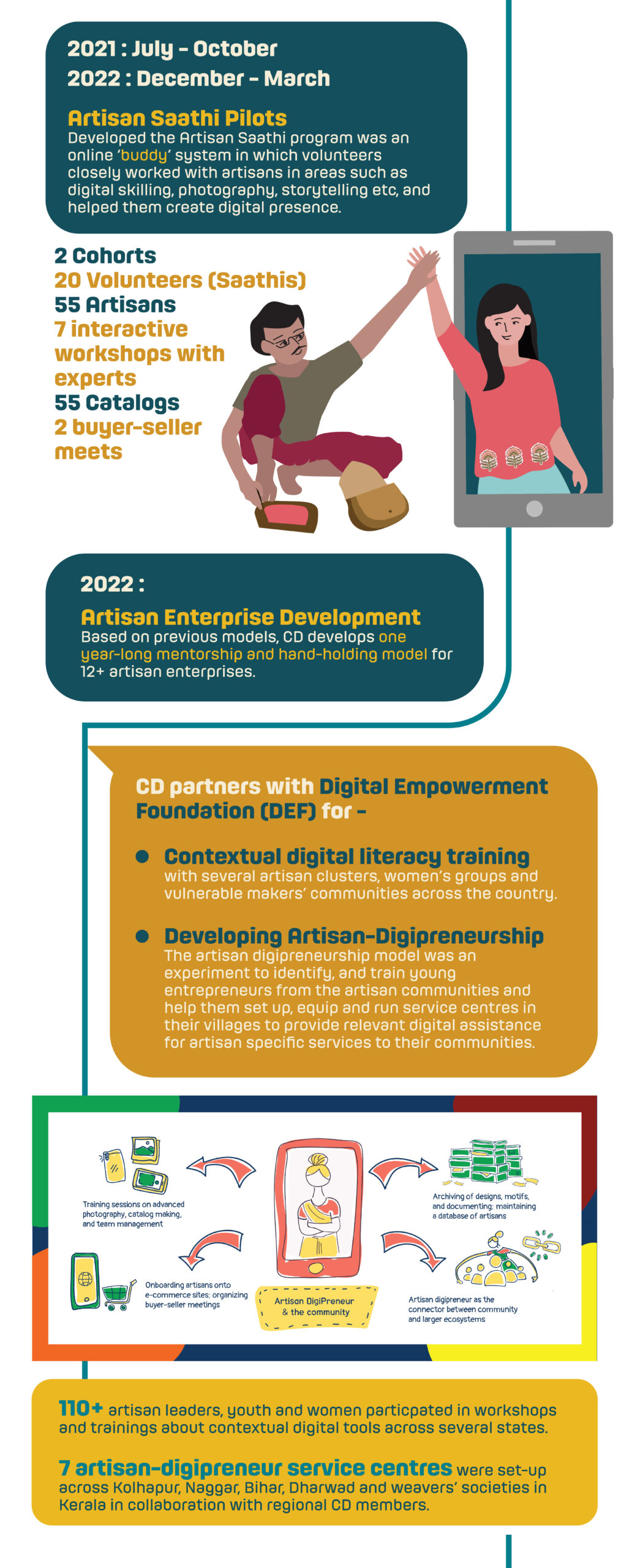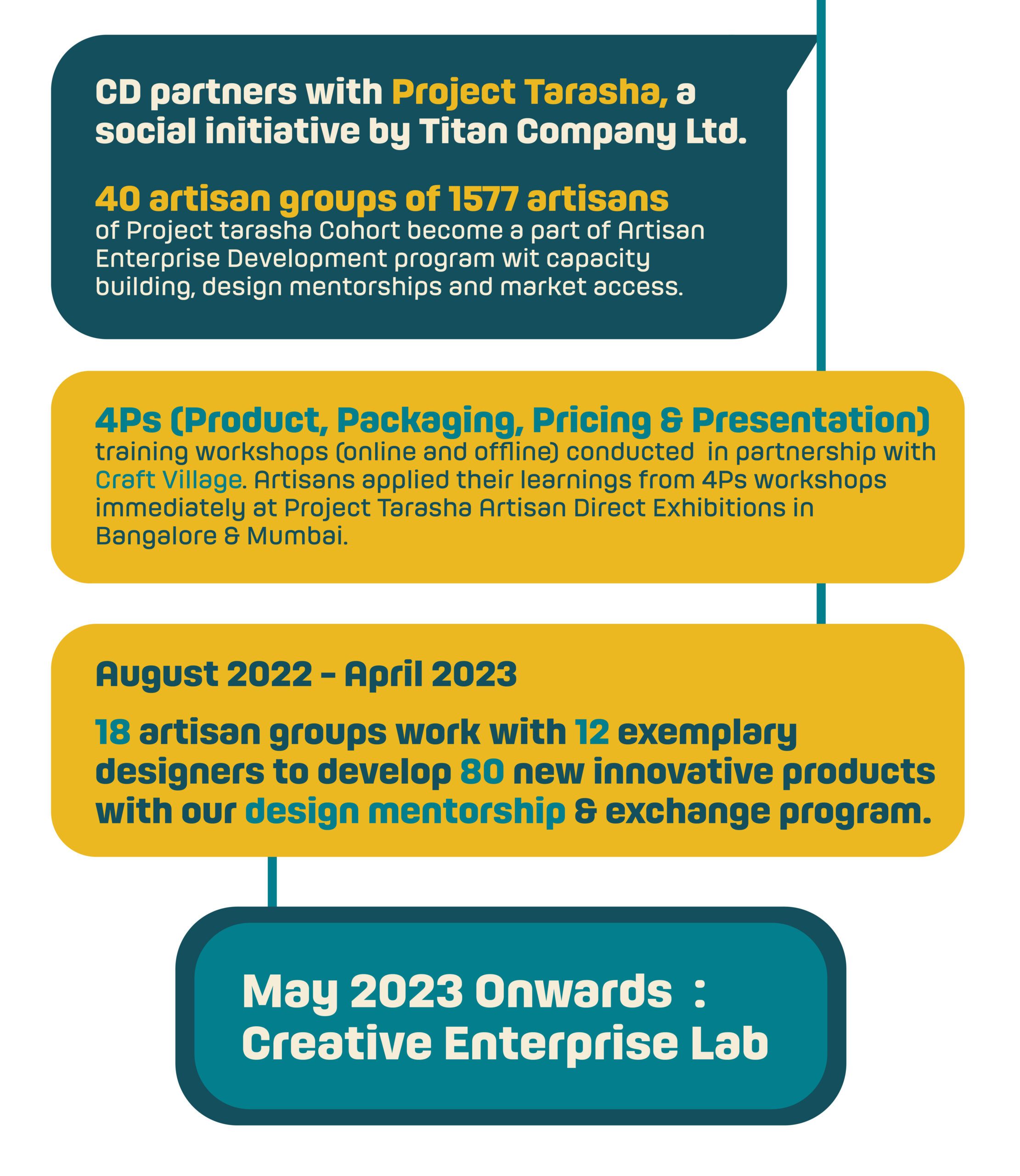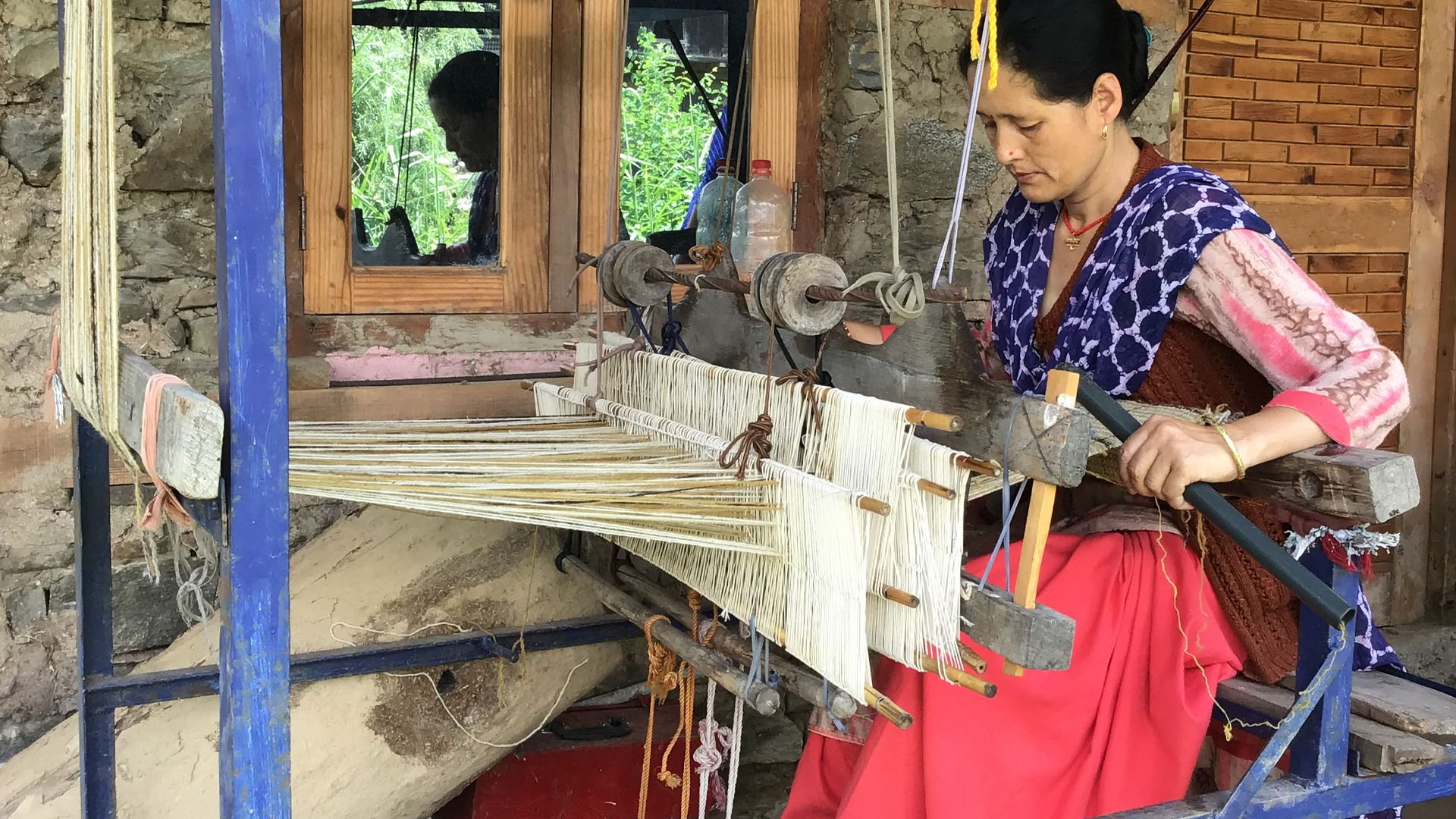Covid enabled many young artisans to enter the handmade sector due to the digital expertise that became necessary as well as the breakdown of the immediate economy. The next generation of artisans are interested in entrepreneurship but need the knowledge and skills for it. They are looking for partnerships rather than patronage.
Markets have been shifting since Covid. There is an increase in awareness about handmade and traceable products as well as a mandate for global retailers to shift to more carbon efficient supply chains.
The handmade sector is challenged at the supply chain level due to uncertainty of raw materials, economies of scale and self-organized supply chains. The diversity of the sector demands customization and aggregation rather than replication. Suitable models for this need to be developed.
There is a need for the next generation of artisan entrepreneurs to understand these shifts, prepare for the new market demands, upgrade skills, and develop responsible benchmarks of practice both as entrepreneurs and at the cluster level. This will enable employment in the rural economy and position the handmade sector as part of a regenerative economy.
With (CEL Creative Enterprise Lab) program , CD as a network, is building a nimble entrepreneurship development program accessible across India through its partners and members that addresses key areas like digital marketing, design, entrepreneurship, supply chain management, value addition and infrastructure. This will be supported by mentorship and market access. The program will comprise a series of related training modules and value addition at the cluster level along with appropriate capital and market access.
Stay tuned to know more about the journeys of these artisan enterprises with CD and beyond!






Objectives of the CEL Program :
1. Reach artisan entrepreneurs of textile and non-textile handmade practices who need new skills for growing their enterprises.
2. Skilling the artisan entrepreneurs in various skills for better efficiency and scaling of the enterprise
3. Develop a systematic methodology of enterprise development that artisan entrepreneurs can access across India.
4. Strengthening non-farm opportunities for sustainable employment in rural economies. Farming is seasonal and it is critical for families to find other means of employment.
5. Enhancing traditional skills and knowledge with new technologies.
6. Create appropriate and sustainable market access for artisan entrepreneurs.
7. Increase in perceived value of production will lead to increase in income levels over a defined period.
8. Develop open source resources, modules and methodologies of working towards development of creative enterprises, for the sector to adopt and adapt.
